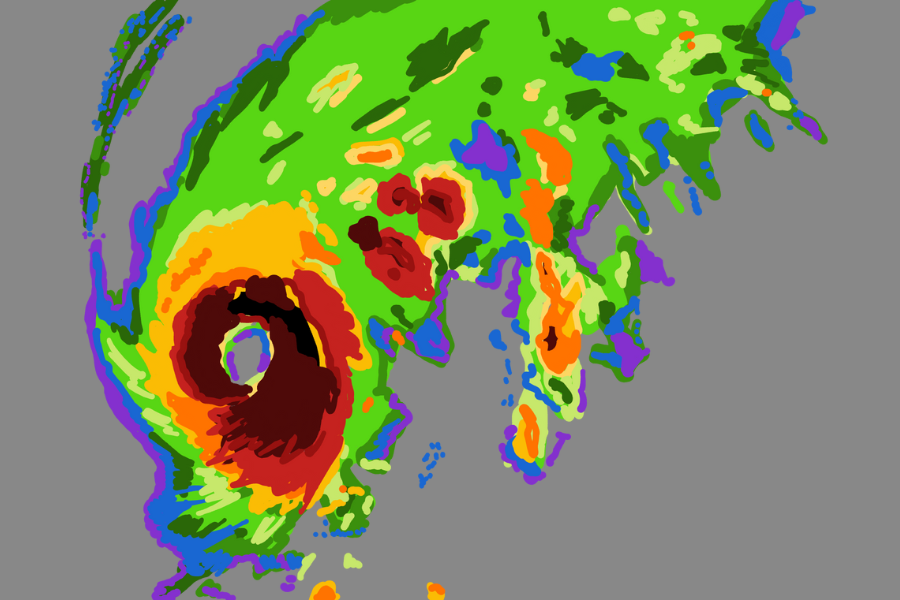Hurricane Ian hits Floridian students’ hometowns
Hurricane Ian hit Southwest and Central Florida with Category 4 strength, reaching wind speeds up to 155 miles per hour.
October 4, 2022
People kayaking down the flooded streets, metal debris strewn across lawns and roofs caved in: As photos of the aftermath of Hurricane Ian spread online, what may seem like distant destruction is a reality facing many Northwestern students and their families.
Last week, Hurricane Ian hit Southwest and Central Florida with Category 4 strength, reaching wind speeds up to 155 miles per hour. Initially, the storm was projected to only affect the Tampa Bay region, but its rapidly changing route left many residents unprepared as they lost power and evacuated homes.
McCormick freshman Logan Mappes said he has been unable to contact his family in North Port, a city near Florida’s Gulf Coast. He does not know the extent of the damage outside of information from old classmates’ posts.
“I feel like once my family gets cell service, I can call them again and talk to them, and then I’ll learn more,” Mappes said.
Weinberg sophomore Lukas Cortes is from Sarasota, Florida, another city along the Gulf Coast. Although his family lost power, he said they are safe.
Most phone calls and text messages to family members have not gone through because of damage to local cell towers, Cortes said.
“My mom doesn’t have electricity, but she has a hard time texting.” Cortes said. She tries to call me when she can, because a lot of the times I call her and it doesn’t go through. That’s been a little difficult for her just because she feels disconnected from the world.”
A significant issue in Cortes’ area has been transportation due to the flooding and debris on the streets. He said the hurricane was a surprise for Sarasota because the East Coast more frequently takes the hit.
Cortes said the financial burden that severe weather places on families should be taken into consideration, too. He said his mother may not be able to go back to work for a couple of weeks due to the damage and power outage.
“If we’re still expected to pay tuition, to pay travel flights in a time where my mom might not even have a job, that’s really, really difficult,” Cortes said.
Cortes said he has been posting online about the crisis and speaking about it with students on campus.
He hopes the University’s administration will make more efforts to address the effects natural disasters can have on students, Cortes added. He cited the recent California wildfires and Category 3 hurricane Fiona which impacted Puerto Rico as potential opportunities for University assistance.
“I think the University has a lot of obligation to not only speak out about these things, but offer financial help or at least some sort of evaluation process to see how people are being impacted,” Cortes said.
Weinberg freshman Diya Patel said her family in St. Petersburg, Florida, had to evacuate their home.
While severe tropical storms and hurricanes are nothing new to Patel, she said Ian was different because she was in Evanston when it hit.
“I feel detached because I’m not really there right now,” Patel said. “I’m hearing what everyone else is hearing and not living through it as a resident.”
Email: [email protected]
Twitter: @eschmitt318


